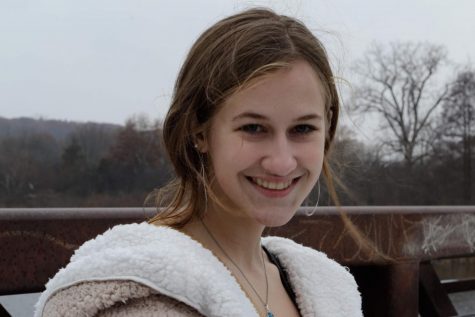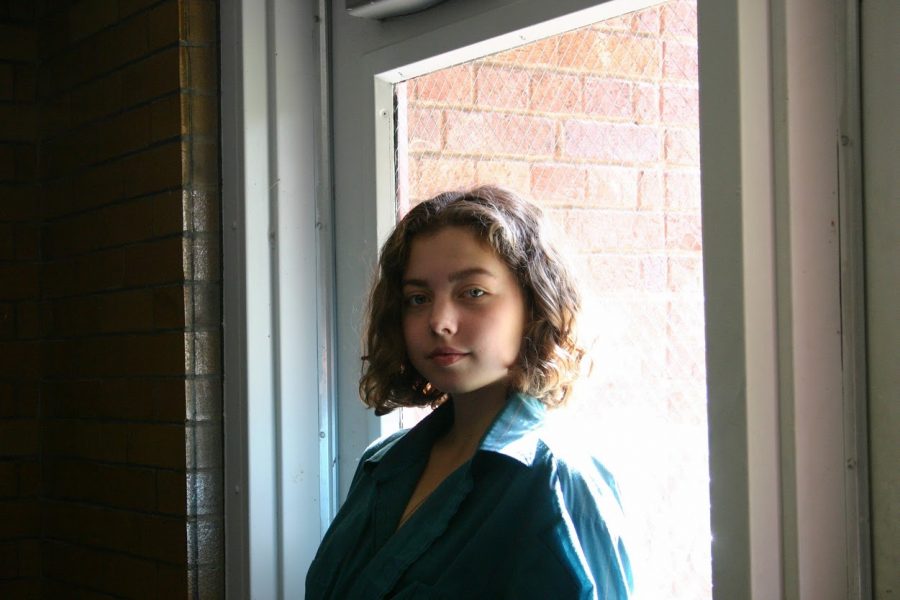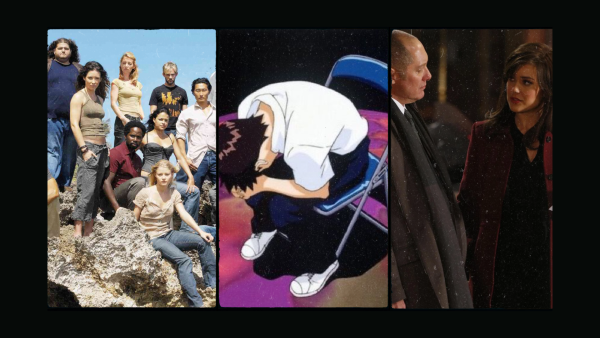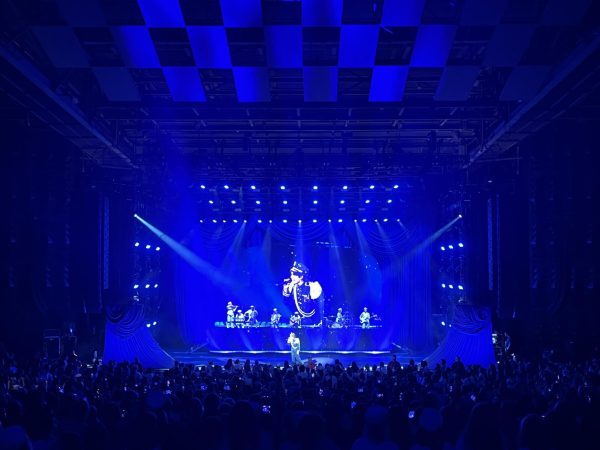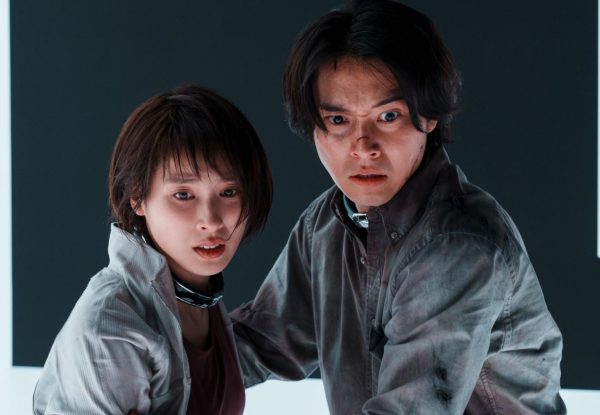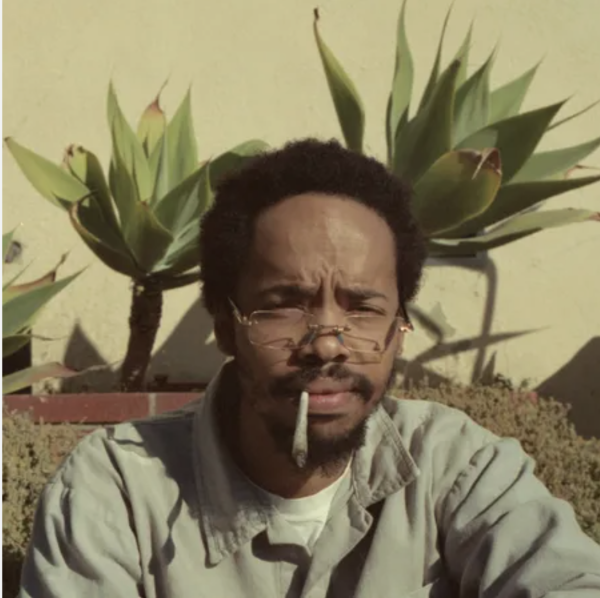An introduction to Community High poetry with Andie Tappenden and Thea Rowe
It’s hard to pinpoint when it started, but maybe it was early 2017, sophomore year for both Thea Rowe and Andie Tappenden. On March 30, 2017, at the Neutral Zone Ann Arbor Youth Poetry Slam Finals were occuring. There was a tie for sixth place, which resulted in a lighting round to break it. That is when Rowe performed her third poem of the evening. Tappenden watched and thought, “It’s incredible that people my age are doing this well.”
At the end of the slam, Rowe ended up on the city-wide slam team; she would be a member this year and two following. Tappenden watched from the audience. When she thought back on it later, maybe it was this event that truly made her want to get into poetry.
But it could have started later. Fast forward two years: Nov. 30, 2018, at the Ann Arbor Youth Poetry Slam Finals. This time they both stood on stage; Tappenden ended up in third place, Rowe in fifth. Both are now members of the city-wide slam team.
What happened in the two years in between? More importantly: what happens next?
Andie Tappenden is five feet nine inches and her handwriting curls in rushed, yearning lines. When she reads her poetry, she pauses, usually after asking questions that she gives to the audience to answer. “How many stories… are there of damned women listening to their hunger?” she asked at the start of her first poem, at the Slam Finals in November. No one responded directly, but snaps were heard and hesitant applause grew.
At the same slam finals, Thea Rowe read a poem not about, but mentioning, vertebrae and reached up slowly to touch the back of her neck, pushing away hair to do so as she talked about recognizing each one of her bones. When she writes her pieces, sometimes it’s because things were “rolling around in her brain for a while,” but other times she starts with an image and fleshes it out from there, figuring out why it’s so intriguing to her along the way. This is how she wrote this recent poem, which started with an image from the children’s movie “Rasputin.”
This is her third year on the city slam team, and Rowe feels like she doesn’t have to prove herself as an artist, unlike her previous years — she was one of only two sophomores on the team that first year. Poetry is more for her now. “I don’t want to say that it’s less pressure than it was, ” Rowe said, “but it feels more like just pure fun.” Rowe said.
The team is run out of the Neutral Zone and consists of six high school poets. They compete in slams and write poems. This year, the city slam team is focusing completely on the regional Detroit slam Louder Than A Bomb (LTAB). When Rowe was on the team in past years, they prepared for LTAB secondary to a bigger event in the summer which changed year to year. This time it’s all LTAB, a slam taking place in late April 2019 for high schoolers across the state. Team members compete both individually and in group poems, attend workshops, and explore Detroit. To prepare, the team will start meeting regularly in January.
Many of the team members are reading in Poetry Night in Ann Arbor, so before they meet for LTAB, they must prepare for that. This is the first time reading at an official event like this for both Rowe and Tappenden. Rowe plans to read her poem about “Rasputin” and Tappenden a poem about cooking dinner for all her past selves. It’s a different setting than your typical slam: instead of the dual nature of slams, balancing writing and performance, this is purely writing without the judgement or the feeling of being evaluated on stage.
“There’s less pressure as far as proving myself and my worth,” Rowe explained. “I’ll just be there because I want to be there, and I’m sharing something with all the people in the show and all the people in the audience that night.”
In contrast, when it comes to slams, according to Rowe, they “can be really nerve-racking, especially because it’s such a personal thing.” The evaluation of such a subjective artform is hard: judges must look at performance, language, style. But slams are an important part of keeping people interested in the scene and making them feel like they’re progressing.
It was never really about the slams anyway. “I like creating out of what is otherwise just a rigid structure, and exploring the absolute boundaries of that and meaning through language,” Rowe said.
Slams can be terrifying, but it’s an environment poets must not only adapt to but thrive in. Tappenden never would have imagined reading in front of anyone. She started writing poetry sophomore year but felt like she couldn’t go to Poetry Club on her own. She wasn’t involved in the poetry scene; her only experience performing was reading her poems to herself, while she wrote them or after.
“Last year, an exact year ago, there was just no way — I thought I would never ever read a poem for anyone,” Tappenden said.
But this changed. She entered the poetry scene in spring of 2018 after watching a reading in December with her forum and wishing she was onstage. When Ellen Stone, head of poetry club at the time, asked her in the hallway if she wanted to read in the slam, she said yes.
That slam season, she made it to finals, after placing second behind Rowe in the preliminary slam at Community High School (which was a huge shock for her). Tappenden made it to the second round, but ultimately did not make the team. There was a different outcome this year, which Tappenden attributes partly to the shift in the way she viewed performance.
“Why did I write these poems in the first place?” Tappenden asked herself, which helped her to connect more with the pieces and ultimately perform better. “Obviously I want to do well in the slam… but I didn’t write these poems for the slam, I wrote them for myself.”
When I talked to Rowe and Tappenden about poetry, they spoke differently than when reading into a microphone at a slam or when speaking in the classroom, which is to be expected. There is none of the rigid structure that Rowe turned to poetry to avoid; instead of the calculated syllables, the breaths and the pauses, words run into each other, creating longer and longer sentences until we are unsure where we have begun.
But in a way, this makes sense: “every writer is a poet by default and every sentence a little poem,” wrote Joe Moran an essay that started with the sentence and drifted into something more. “The longer the sentence, the more closely it resembles poetry, or should do.”
Their sentences, when talking about poetry, begin to resemble their passion.
The future is yet to be determined for Rowe, an almost second-semester senior. For college, she wants to leave Ann Arbor. Nothing’s set in stone, yet. She’s looking to stay involved in the literary arts scene.
One thing is known: she’ll miss the poetry scene here in Ann Arbor. “I’m definitely taking it for granted at the moment and once I leave it’ll be a hole that I’m trying to fill,” Rowe said.
Tappenden, also a senior, knows where she’s going: she’s committed to Swarthmore College, outside of Philadelphia, Pennsylvania, for field hockey. She knows the bigger picture, but even in this context, little things hit her day by day.
The other day, driving to school, a song came on that she listened to before the preliminary slam at Community, the slam before finals, before she was on the team. The song: “Martha My Dear,” by the Beatles, a song she describes as a little sexist but ultimately a “bop.”
That song came on, and she was reminded of finals again. “I got third!” she thought to herself. It keeps hitting her. Poetry Night is soon, and just weeks after the slam team will start to get together, preparing for LTAB, and soon after LTAB is the end of classes for seniors and graduation. After is college. The rest of life.
But right now, driving to school, there’s time to reflect back on that slam at the Neutral Zone her senior year, where she made the team for the first time in her final year of high school. There’s time for it to hit her: “I got third!” And there’s time to wonder if at that slam, maybe there was someone in the audience, a sophomore perhaps, who just discovered their love of poetry. And just maybe it was found through listening to Rowe and Tappenden, hearing their words.
It could be a far-fetched possibility. But they’re exploring the boundaries of poetry, of meaning through language. Who knows what could happen?
